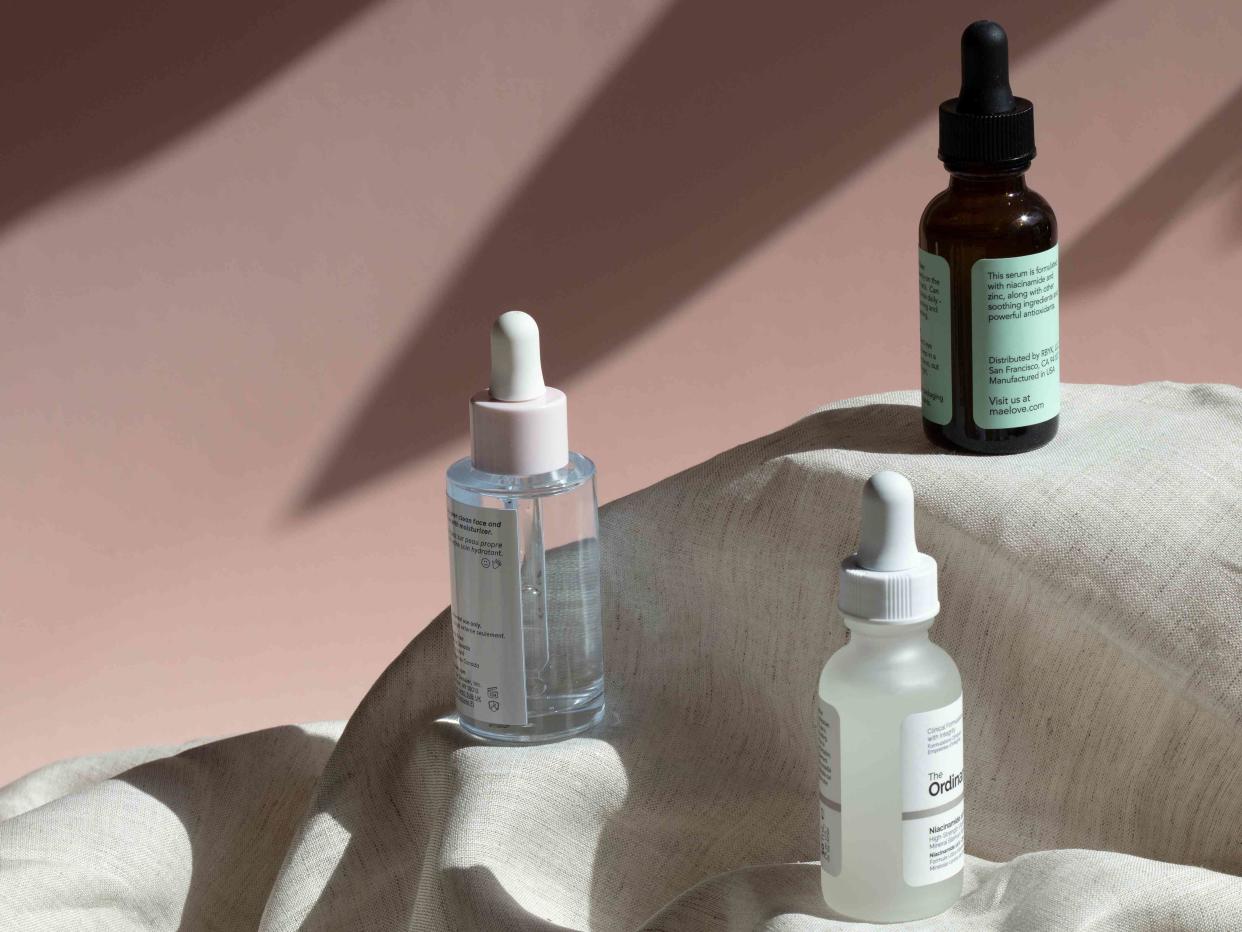How to Use Face Serums Like a Dermatologist

Liz de Sousa / Byrdie
Most skincare products are fairly self-explanatory: Cleansers cleanse, exfoliants exfoliate, moisturizers moisturize—you get the idea. But then there are those tricky serums. Often delivered in small, cute vials with big, bold claims, it can be tempting to throw them into our routines even if we don't really know exactly what they are or how to best use them.
To better understand face serums, we went to the experts: board-certified dermatologists Rawn Bosley, MD, FAAD, and Nkem Ugonabo, MD, MPH. They answered all our burning questions, including when and how serums should be used. Keep reading to learn more.
Meet Our Expert
Rawn Bosley, MD, FAAD, is a double board-certified dermatologist and dermatologic surgeon at Signature Dermatology & Aesthetics in Grapevine, Texas.
Nkem Ugonabo, MD, MPH, is a New York City-based board-certified dermatologist at UnionDerm and an assistant professor at Albert Einstein College of Medicine.
What Are Face Serums?
"Facial serums are lightweight, concentrated solutions composed of active ingredients that are designed to easily enter into the skin," explains Bosley. The experts say they can meet various needs, from toning to oil control. "For example, some face serums may contain vitamin C, hyaluronic acid, etc., and are often a part of a multi-step skincare routine, particularly for people who want to target specific issues," Ugonabo adds.
Common Benefits
Some benefits of face serum are improved skin texture and tone, reduced fine lines and wrinkles, and enhanced hydration and nourishment. Ugonabo says that the benefits depend on the active ingredients: "Face serums containing AHAs, such as glycolic acid, or BHAs, such as salicylic acid, can help address texture and tone," she tells us. A serum with the active ingredient retinol can target fine lines, while a serum with a higher concentration of hyaluronic acid can nourish and hydrate the skin.
How To Choose a Serum
In a time when TikTok is a primary search engine, it can be tempting to go with whatever is trending. But Bosley recommends focusing on the active ingredients and not so much on what's popular. "Serum brands will generally list their active ingredients with a brief description of the ingredients' key impact on the skin," he says. His recommendations include:
"For pigment concerns, choose active ingredients such as tranexamic acid, glycolic acid, and potent antioxidants such as lotus sprout extract."
For inflammation and redness, he recommends niacinamide-based serums.
Looking to boost hydration? Go with hyaluronic acid and panthenol.
If you have acne-prone skin, he suggests salicylic acid and niacinamide.
As with the rest of your skincare routine, selecting a face serum is very personal to your skin type and desired effect. And it's always a good idea to speak with a board-certified dermatologist who can help you understand your skin and select the best products.
More Beauty
When to Use Them
How frequently you apply a serum "can be adjusted based on individual needs," Ugonabo says, though she does have some general best practices for certain serums. For vitamin Cs, she advises once a day in the morning, and for retinol, she suggests once a day at night. "Hyaluronic acid-based serums can be used once or twice a day," and exfoliating serums (AHAs, BHAs) can be used weekly (twice a week at most).
How to Use Them
Remember that face serums have higher concentrations of active ingredients, so "a little goes a long way," Ugonabo tells us. A few drops are typically enough, but she says to always read the packaging, as specific instructions will vary by product.
Both experts agree that the general rule of application is to go from the thinnest to the thickest product. Serums are typically applied after you wash your face but before heavier products like moisturizers and sun protectants.
Do You Still Need Moisturizer and Sunscreen?
The short answer is yes. Ugonabo says some serums may actually make your skin more sensitive to the sun, so protection is very important. Bosley also advises ensuring that your moisturizers and sunscreens don't have the same active ingredients as your serums because "too many active or overlapping ingredients can lead to skin irritation and may delay your skin goals."
Common Mistakes To Avoid
"The biggest issue I see is people overdoing it in terms of quantity, particularly for something like topical vitamin C or retinol serums," Ugonabo says. "A little bit goes a long way, so stick with just a few drops." Bosley echoes this: "Two common mistakes when applying serums are applying too often and applying too much," he adds. He suggests applying a thin layer—usually a few drops—spread evenly over the desired area.
He adds that another mistake is applying the dropper or applicator directly to the skin, which can cause contamination. Drop the serums in your hands first, or hover the applicator over the skin without touching it.
The Final Takeaway
Face serums are lightweight skincare products with heavy concentrations of active ingredients to address specific skincare concerns. Not all serums yield the same results, so you'll want to pick one that caters to your skin type and desired goals. Whether your goal is to minimize the appearance of fine lines and wrinkles, boost your skin's hydration, or treat hyperpigmentation, incorporating a serum into your routine can help you get the job done. And, when in doubt, always seek the expertise of a dermatologist.
Read the original article on Byrdie.

